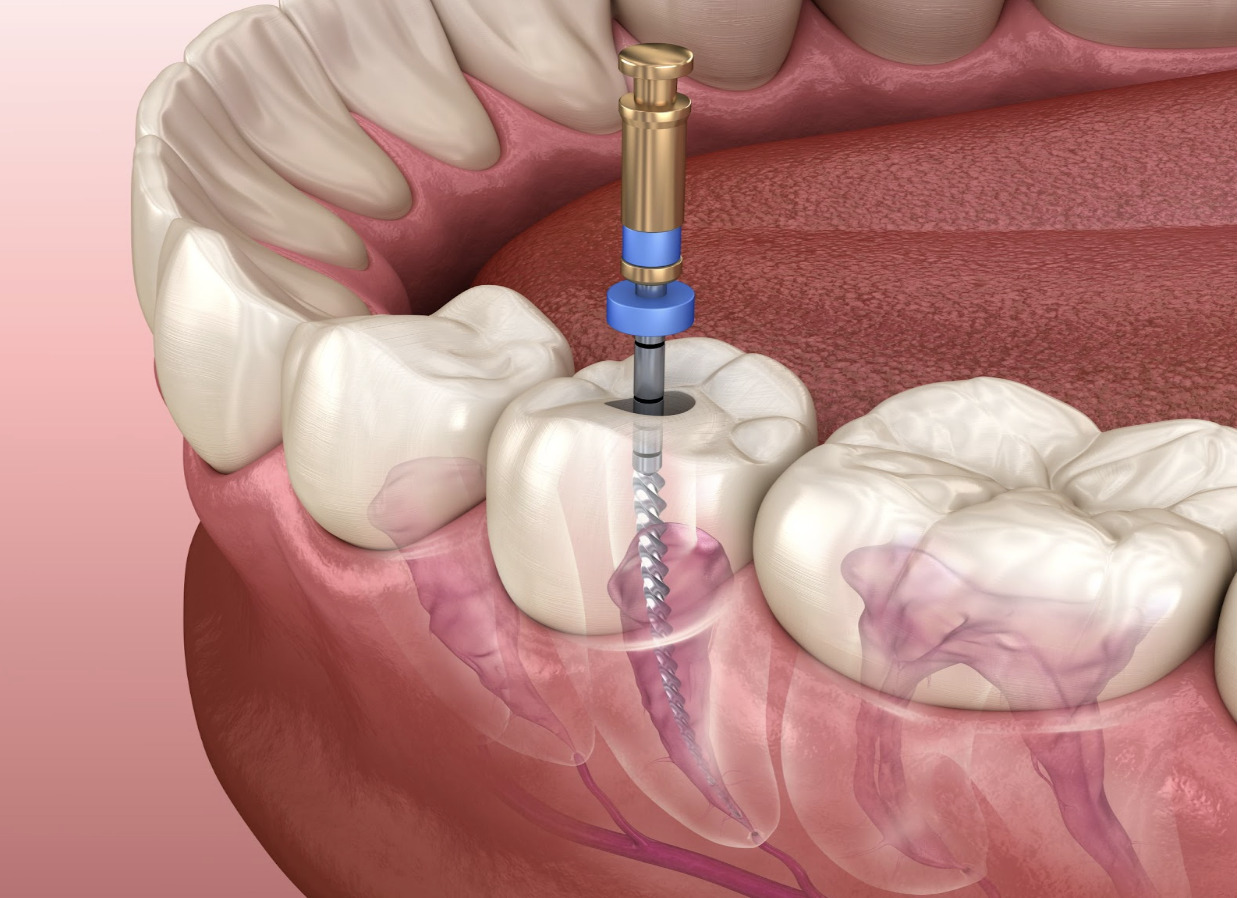Are you experiencing tooth pain or sensitivity while eating or drinking? It could be a sign that you need a root canal. A root canal is a dental procedure that removes infected or damaged pulp from inside the tooth, preserving the natural tooth structure and saving your smile. Endodontists are specialists who perform this treatment, using advanced diagnostic tools to identify the affected area and provide effective anesthesia for a comfortable experience. Read on to learn more about root canals and how they can save your smile!
What Is A Root Canal?
A root canal is a dental treatment that aims to rescue a tooth from severe damage or infection. It involves removing the damaged pulp from the tooth’s root canal, cleaning and disinfecting it, filling it with gutta-percha material, and placing a crown or filling on top for restoration.
Importance Of Endodontists
When it comes to saving natural teeth with root canal therapy, endodontists are vital contributors to the process. The importance of endodontists lies in their expertise in performing this delicate dental procedure that requires precision and care for successful results. During the treatment process, they remove the affected tooth’s nerve and pulp before cleaning up the root canal with specialized tools and filling it with rubber-like gutta-percha material. If you experience discomfort or swelling around your gums or have tender gums after chewing food, contact an endodontist immediately for proper diagnosis and treatment.
When Is A Root Canal Needed?
When the pulp inside a tooth is infected or damaged, a root canal may be necessary. Symptoms like severe toothache, sensitivity to hot and cold, and swelling may signal the need for one. X-rays can confirm if the procedure is required. Acting quickly can prevent further damage and potential tooth loss.
Symptoms Of Decay And Abscesses
Symptoms of decay and abscesses indicating a possible root canal procedure include severe tooth pain, sensitivity to hot or cold temperatures, swelling, and discomfort while biting or chewing food items due to tenderness in the affected area accompanied by pus formation around the affected tooth. Cracked teeth or deep cavities often lead to pulp damage and subsequently infection. Immediate treatment is necessary to avoid further damage to the root of the tooth resulting in permanent loss.
Diagnostic Tools Used By Dentists
Dentists use various diagnostic tools like X-rays and an examination of affected teeth and surrounding gum tissue to confirm if a root canal treatment is necessary. After confirming that there’s damage to the pulp chamber or infected pulp, they proceed with endodontic therapy. The process involves removing diseased or damaged pulp using files and irrigation techniques; cleaning and shaping root canals; filling them with gutta-percha (rubber-like material); rinsing out any debris; restoring teeth (with crowns or fillings). Properly treated teeth can last as long as natural teeth with good oral hygiene.
How Is A Root Canal Performed?
During a root canal, the dentist removes infected or damaged pulp from a tooth by numbing the area and creating an opening to access the pulp. Special tools are used to remove the pulp and clean out the root canals. The tooth is filled with dental material and may be capped with a crown for protection.
Anesthesia And Local Numbing Agents
To ensure a pain-free root canal treatment experience, dentists first use local anesthesia to numb the affected area. An opening is then created in the affected tooth through which the damaged or infected pulp is removed. Once cleaned and shaped accordingly using specialized tools used by endodontists or dentists, the root canals are filled with gutta-percha – a rubber-like material – for restoration.
Pulp Removal And Canal Cleaning
When undergoing a root canal treatment, involves removing infected pulp from your tooth’s center and carefully cleaning its root canals. With local anesthesia, your dentist creates an access hole to extract infected pulp before cleaning out any traces of bacteria. Next, they insert a rubber-like material to prevent reinfection and swelling that could damage your natural teeth. This dental procedure could take several sessions under local anesthesia for optimal results. Finally, your treated tooth is restored with either a permanent filling or crown.
Filling And Crown Placement
After numbing the affected area, the dentist creates an opening in the tooth’s crown to access its center, where they remove damaged or infected dental pulp. They then clean and shape their root canals before sealing them with gutta-percha to prevent reinfection. This procedure may require a temporary filling before placing a permanent crown for restoration. It’s recommended to maintain good oral hygiene by flossing regularly and following up with your general dentist.
What To Expect During Recovery?
After a root canal treatment, recovery is typically easy, with some possible soreness or sensitivity in the treated area for a few days. Over-the-counter pain relief can help. Your dentist may schedule a follow-up to monitor your progress depending on your case.
Exercising Caution In Chewing And Brushing
After a root canal procedure, it is important to exercise caution when chewing and brushing your teeth. The treated tooth may still be sore and tender for some time. To aid in the healing process, it is recommended to chew on the opposite side of your mouth until the tooth has completely recovered. Also, avoid consuming anything tough or crunchy that may irritate the soft tissues surrounding the tooth. Use gentle strokes when brushing around the affected area to prevent further damage.
Conclusion
Root canal treatment is a highly effective way to save your smile and avoid tooth loss. It is performed by an endodontist who uses state-of-the-art technology and techniques to ensure the procedure is as painless and comfortable as possible. If you are experiencing symptoms of decay or abscesses, don’t hesitate to consult your dentist for a diagnosis and recommendation for treatment. To learn more about root canal therapy and its benefits contact us today at Hassey Do Duy Dental Associates.




